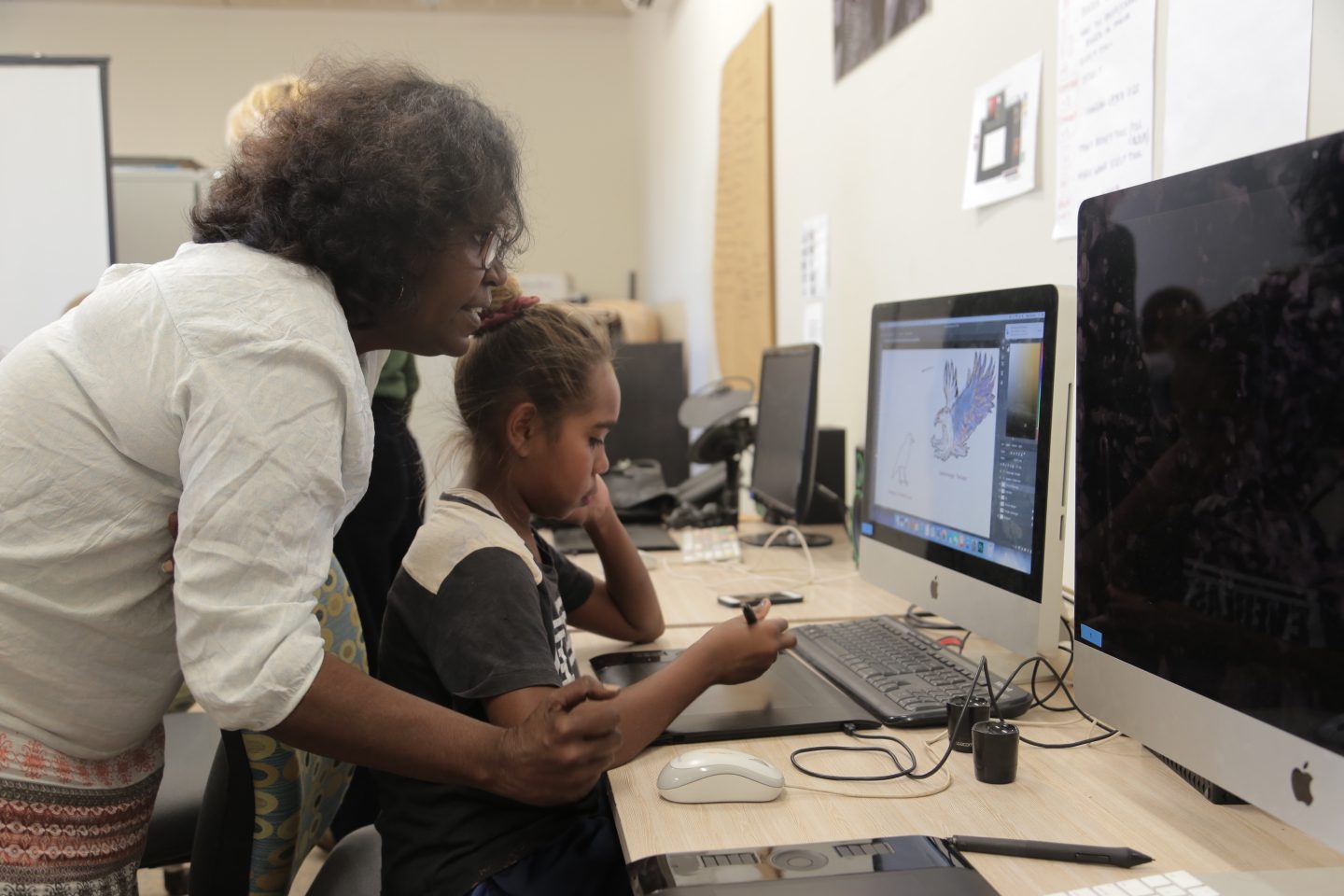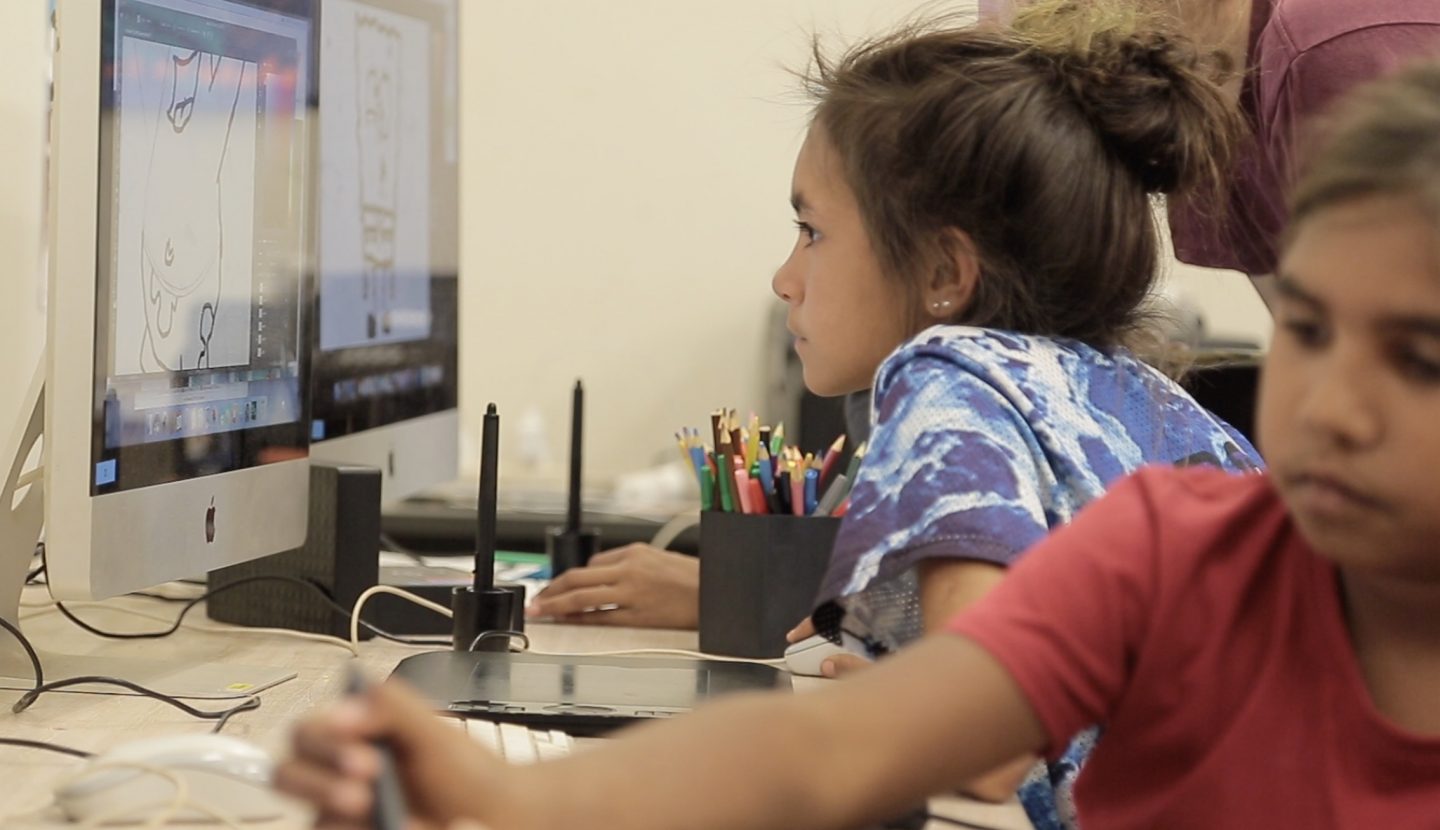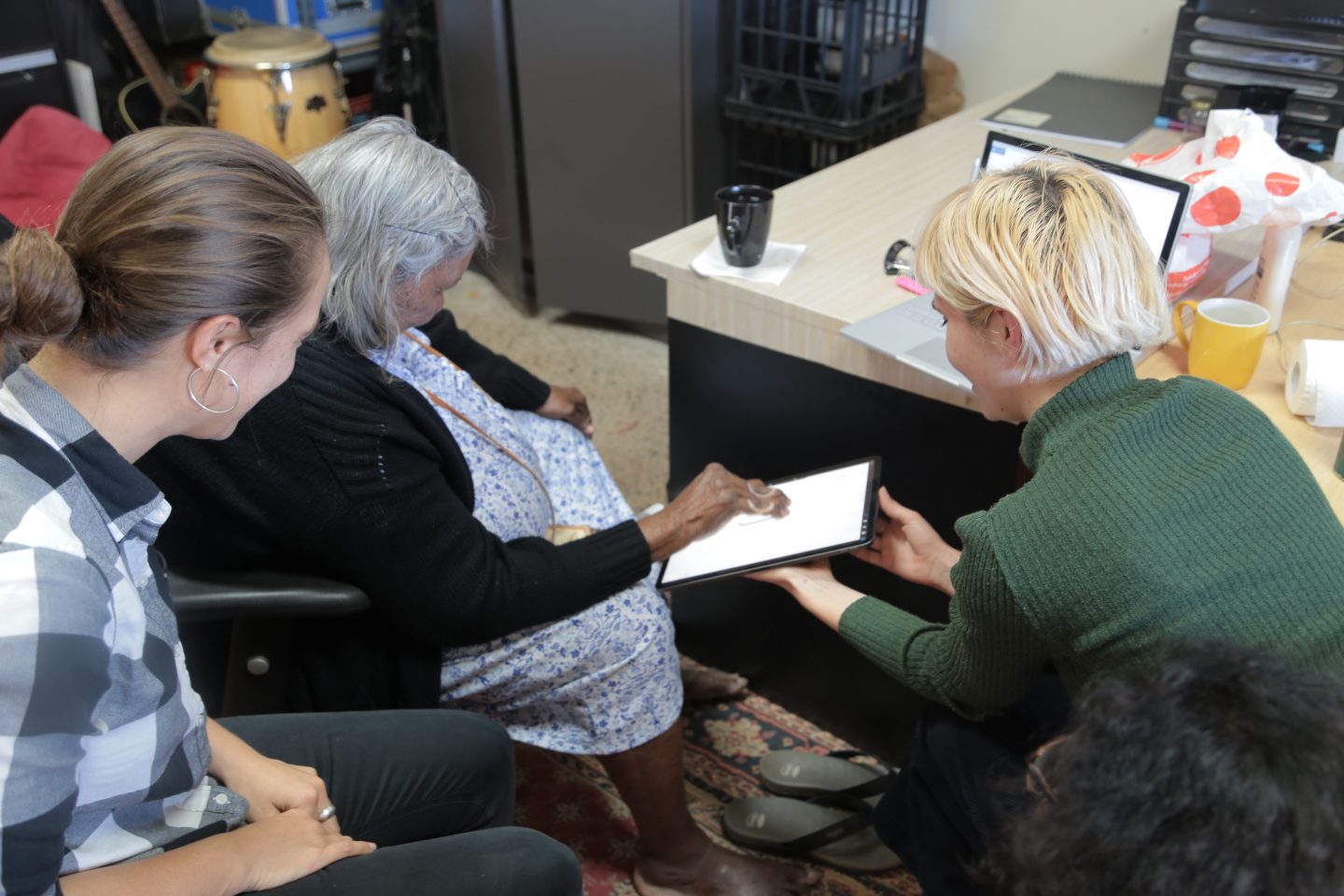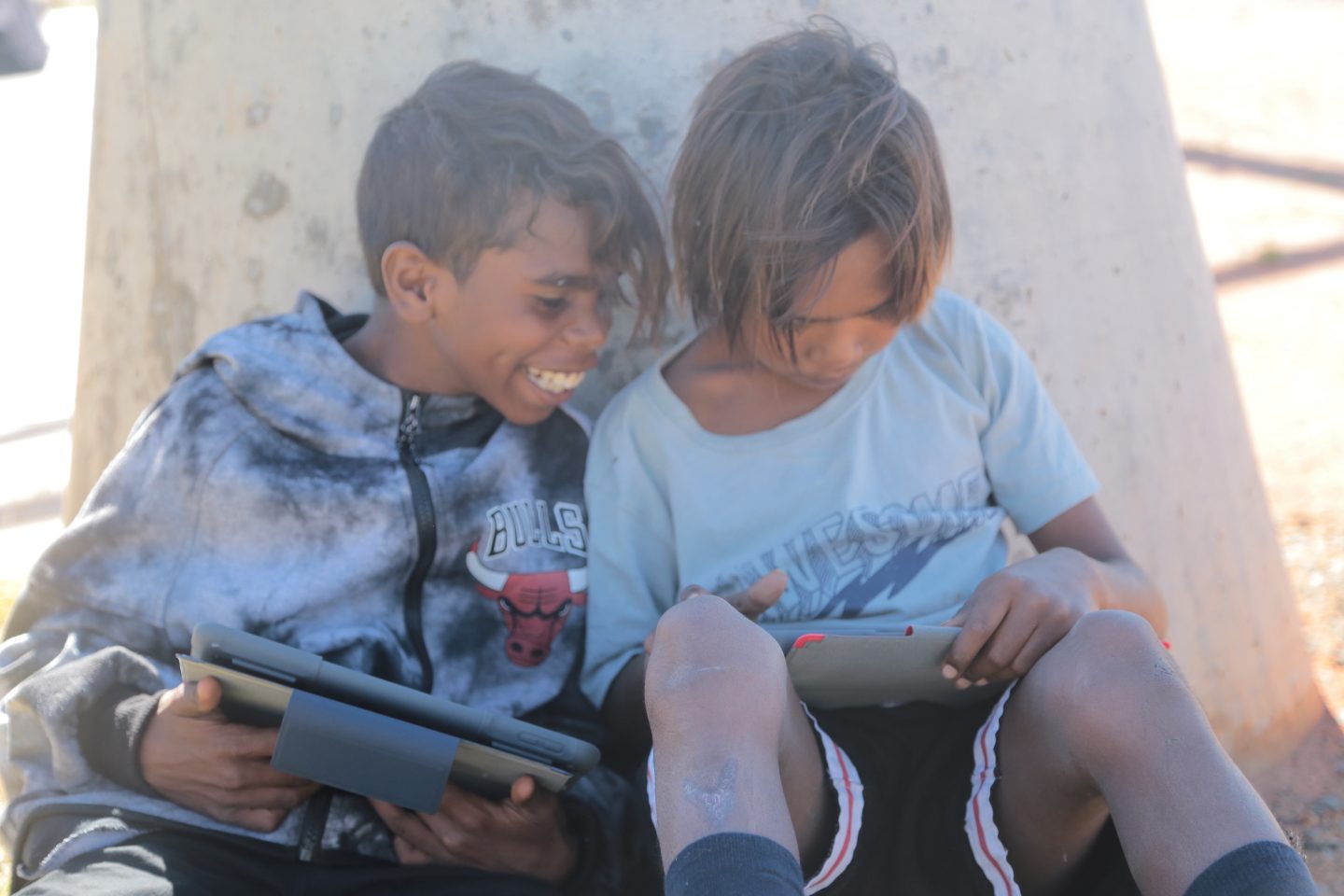A first person chat with Michelle Adams, Yindjibarndi woman and a senior cultural advisor in Roebourne, on how Indigenous people can walk with technology, using it as a tool to keep stories alive. Michelle's role with Big hART has been overseeing cultural safety in the Digital Lab including NEO-Learning and Digital O.
“You have an elder using an iPad and using colour and animation. Young people are learning, I am learning.” -Yindjibarndi woman Michelle Adams on how Indigenous people can walk with technology, using it as a tool to keep stories alive.
“The potential for what we have in Roebourne is a wonderful opportunity to use the digital media platform as a tool, there’s this space sitting there, just ready for a new way of learning, that takes the world’s oldest living culture.
You have an elder using an iPad and using colour and animation. Young people are learning, I am learning.

Michelle Adams with Cherry digitising a traditional story at the Digital Lab, Roebourne. Photo: Big hART
Putting Indigenous stories in that global platform helps Australia have a conversation with itself too, about what was here, and what is still here.
We have to walk with it, but only as a tool, as one way of storytelling, retelling story, archiving it for the future, live storytelling, there is so much potential. The Big hART way, which is the intergenerational way, sitting alongside your old people, storytelling, finding different ways to tell our story.

Shanae & Alkyra use Wacom tablets and Photoshop at the Digital Lab, Roebourne. Photo: Big hART
But it’s important to be careful, to have cultural safety and integrity in the community around the lawful use and legal and cultural right, which is how Big hART has managed our projects. As part of my role, I have to carry that cultural responsibility, building it from the ground up. There are a lot of people in the background. With the research, trying to understand and embrace at the same time, how information is created and sourced. My job is to manage my own excitement, because I can see so much potential with it.

Nanna Pansy tries out drawing on a Wacom tablet, Digital Lab, Roebourne. Photo: Big hART
Elders enjoy watching their granddaughters, there’s rewards for that. It’s rewarding to see that in Nanna Pansy’s face. That means Elders pass on the authority to teach.
There’s so many layers. It’s not rote learning, it’s participatory learning. It’s engagement, it’s learning in action. It’s not service delivery, it’s community learning how it should be. It’s socialisation too. Keeping Yindjibarndi stories alive, keeping Ngarluma stories alive.”

Yilbey & Stanley review their photographs on iPads.
Interview with Michelle Adams, written up by Bettina Richter. More information on Big hART’s projects in Roebourne can be found HERE.
Roebourne’s digital programs are generously supported by LotteryWest, Fortescue Metals Group, Telstra Foundation, Ngarluma Yindjibarndi Foundation, Building Better Regions, Coins Foundation, Restore Hope Foundation, the Blacket family and Pilbara Development Commission.
